You’d think dogs would eat just about anything, and most do. But did you know that roughly one in four dog owners report having a pup that regularly refuses food, even when healthy?
While we often imagine dogs inhaling their kibble in seconds, some breeds come with a refined palate, turning mealtime into a curious game of guess-what-they’ll-eat-today. If your dog has ever dramatically sighed at their bowl or given you side-eye after sniffing dinner, you might just have a picky eater on your hands.
This isn’t just canine moodiness—selective eating can be tied to intelligence, heightened senses, or even breed-specific quirks. And while it can be frustrating, it’s also part of what makes each dog wonderfully unique.
This guide will help you to explore dog breeds that are known to be selective at the food bowl—and offer insight into why they behave this way, plus tips to help make meals more enjoyable for everyone.
Occasionally Picky Eater Dog Breeds
1. Maltese
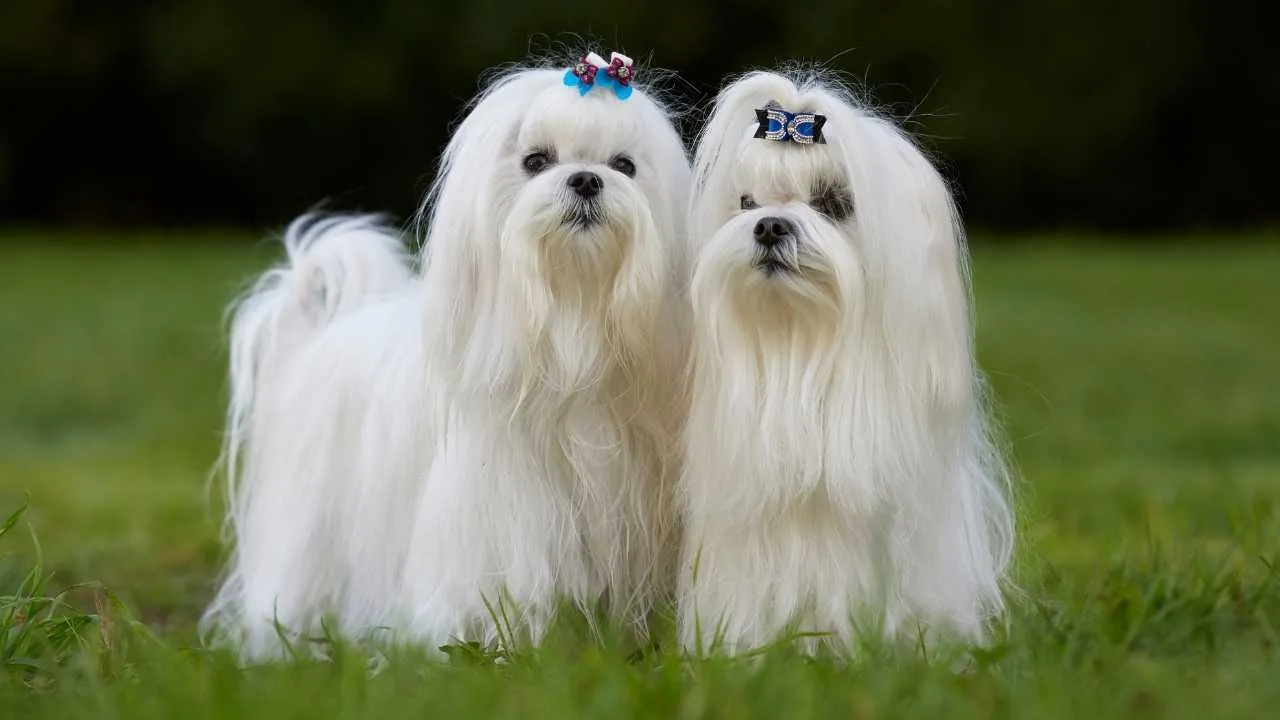
Small in size but big on personality, the Maltese is a classic example of a dog breed known to be an occasional picky eater, as reported by Hillspet. With their refined palate, they may turn their nose up at the same food served twice, especially if it’s dry kibble. Many dog owners find that offering wet food or mixing in canned dog food helps coax these pups into finishing their meals.
This breed’s selective eating habits might stem from a combination of sensitive stomachs and a love for variety. While they can sometimes leave food in the bowl, don’t be too quick to worry—these dogs are known to eat regularly when the meal suits their taste. Swapping in natural foods or baby food (vet-approved, of course) can help spice up their diet without upsetting their tummy.
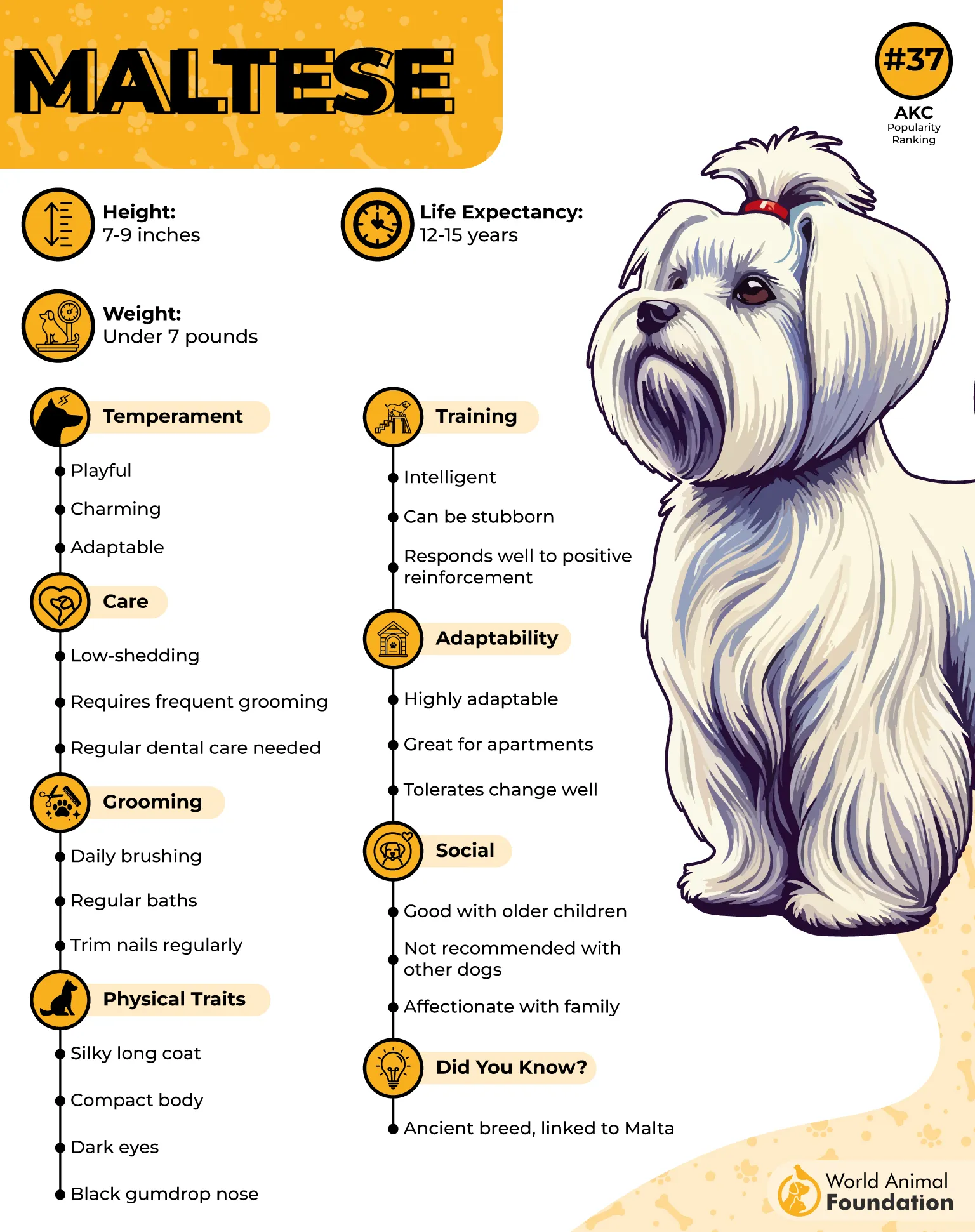
Though they’re tiny, Maltese have fairly high energy levels and need the right nutrients to stay peppy. A protein rich meal might do the trick, especially when you’re trying to balance appetite with weight control. Too many snacks, however, can make them even fussier at dinner.
Feeding time can become a bit of a challenge if your Maltese starts to prefer a human meal plan. The trick is to make their meals as appealing as possible while keeping them fit. Even small amounts of flavorful mix-ins can make a difference.
For owners dealing with a fussy eater, patience is key. Try new flavors, rotate meals occasionally, and stay consistent with routines. With some trial and error, you’ll find the right combo to get your guy happily chewing again.
2. Bichon Frise

The Bichon Frise, with its fluffy charm and cheerful personality, is also known for being one of those occasionally picky-eating dog breeds. Despite their love for play and companionship, these puppies can be surprisingly selective when it comes to what’s in their food tray. They might refuse food simply because it doesn’t meet their standards—or they’re holding out for something tastier.
Pet owners often find that adding wet food or mixing in a bit of canned dog food can make meals more tempting. Some Bichons even show a preference for raw foods with richer flavors, especially when compared to dry kibble. But be cautious—too much variety or giving in to their fussy habits can reinforce picky eating.
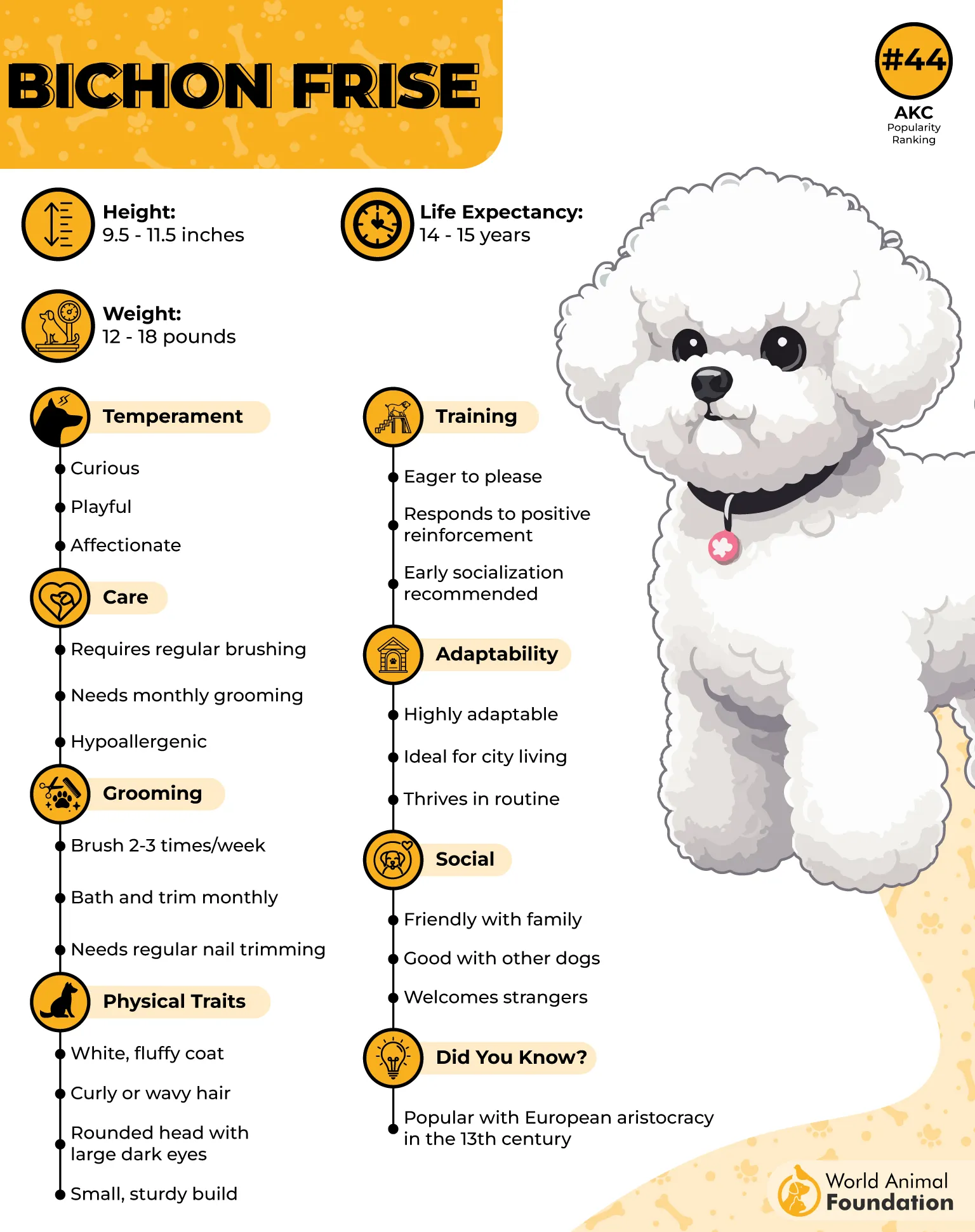
This breed tends to have moderate stamina, so their diet should provide balanced nutrients without excess calories. Overfeeding or relying on human food might lead to stomach issues or cause them to ignore their meals. Offering small amounts of nutritious meals helps keep their hunger in check.
Feeding routines are important with picky eaters like the Bichon. Consistency in timing and ingredients can reduce hesitation at lunch or dinner. Switching up recipes too often can confuse them or make them overly particular.
Patience, creativity, and observation go a long way with Bichons. By understanding their preferences and sticking to healthy feeding practices, you’ll help your pup stay happy, fit, and excited about mealtime, at least most of the time.
3. Yorkshire Terrier

Don’t let their bold attitude fool you—Yorkshire Terriers can be among the most surprisingly selective eaters in the canine world. Despite their reputation as tiny adventurers, they often show big opinions at the dinner table. As one of the more occasionally finicky eater dog breeds, Yorkies may leave food untouched simply because the flavor or texture isn’t to their liking.
Pet owners sometimes notice that these small dogs develop a preference for wet food or meals with added fresh ingredients. While it might seem harmless to indulge their taste, giving too many snacks or bits of table food can make picky eating worse. Yorkies are clever and may quickly learn how to get their way at mealtime.
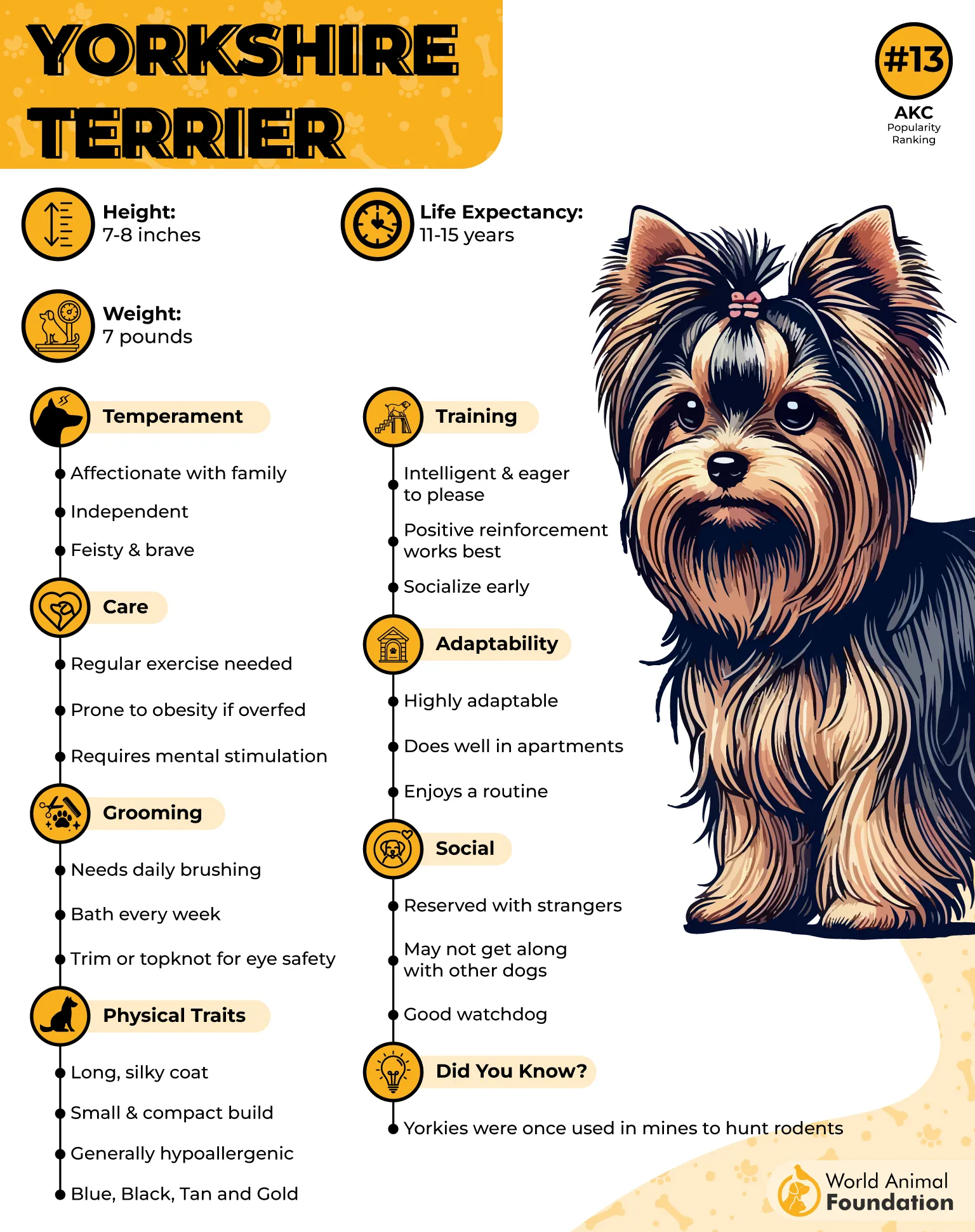
This breed thrives best on a healthy diet tailored to their small size and high energy. Offering a protein-rich meal can help maintain their hunger and prevent the temptation to skip meals. Mixing in canned pet food or warming up meals slightly can encourage even the most hesitant pup to eat.
Because Yorkies are prone to sensitive stomachs, avoiding sudden changes in food is key. Consistency and appealing but balanced meals are your best tools in managing their habits. Occasionally, a vet may recommend gentle options like baby food to support feeding without causing stomach upset.
At the end of the day, picky eating in Yorkies isn’t just about taste—it’s about personality. With a little creativity, a regular feeding schedule, and patience, you’ll find what makes your pup’s tail wag at dinner.
4. Shih Tzu

With their royal roots and unmistakable charm, Shih Tzus aren’t afraid to be particular, especially when it comes to their food. As one of the more well-known finicky eater dog breeds, they might sniff their dish, look up at you, and decide they’re not hungry… unless the meal meets their exact expectations.
These small dogs often prefer wet food or dishes with a strong aroma. Adding a bit of canned dog food or lightly warmed meals can tempt their appetite and keep them from skipping breakfast. Just be mindful—too much variety or feeding a human diet can lead to inconsistent habits and stomach issues, claims PetMD.
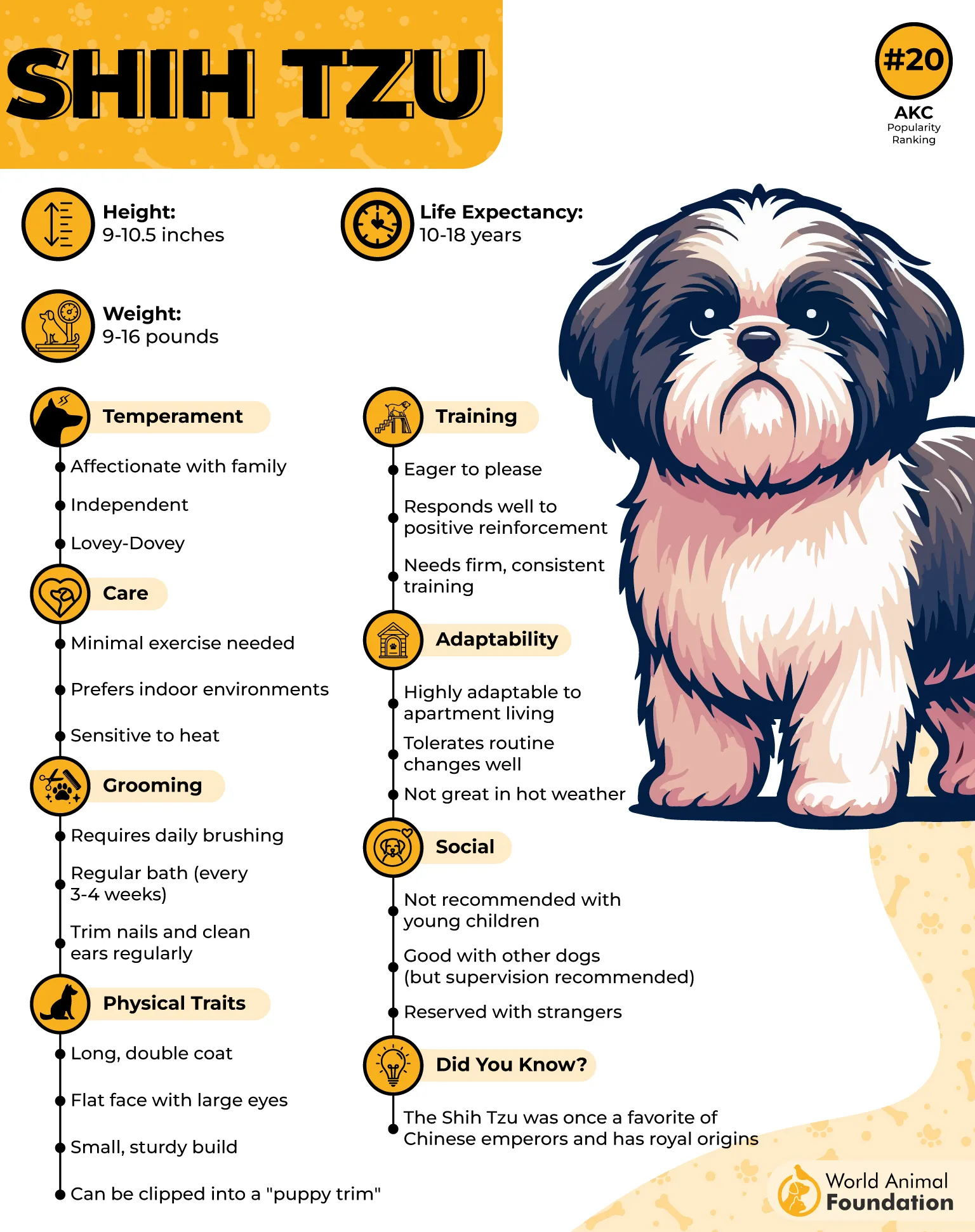
Shih Tzus have modest energy levels but still need balanced nutrition to maintain a shiny coat and proper digestion. Dog owners may notice that their puppies respond well to small amounts of raw foods added to their usual diet, as long as the flavors are gentle on the stomach.
Because of their tendency to be choosy eaters, regular feeding times and a stable diet are essential. Changing food too frequently or allowing them to dictate the menu can lead to long-term selective eating habits.
If your Shih Tzu starts to leave food untouched, don’t panic. A little patience, the right mix of nutrients, and a consistent routine will usually get them back on track, without turning dinner into a daily drama.
5. Dachshund

Dachshunds are full of personality—and sometimes, that includes being a little too opinionated about dinner. While not always picky, they can develop selective tastes, especially when offered too many food options. As picky-eater dog breeds go, they might be more inclined to sniff, pause, and walk away if the food doesn’t pass their sniff test.
Known for their strong food preferences, Dachshunds may turn their nose up at plain kibble, preferring wet food or dishes that smell like human food. Some dog owners find that incorporating canned dog food or warming meals slightly can make a big difference for these puppies.
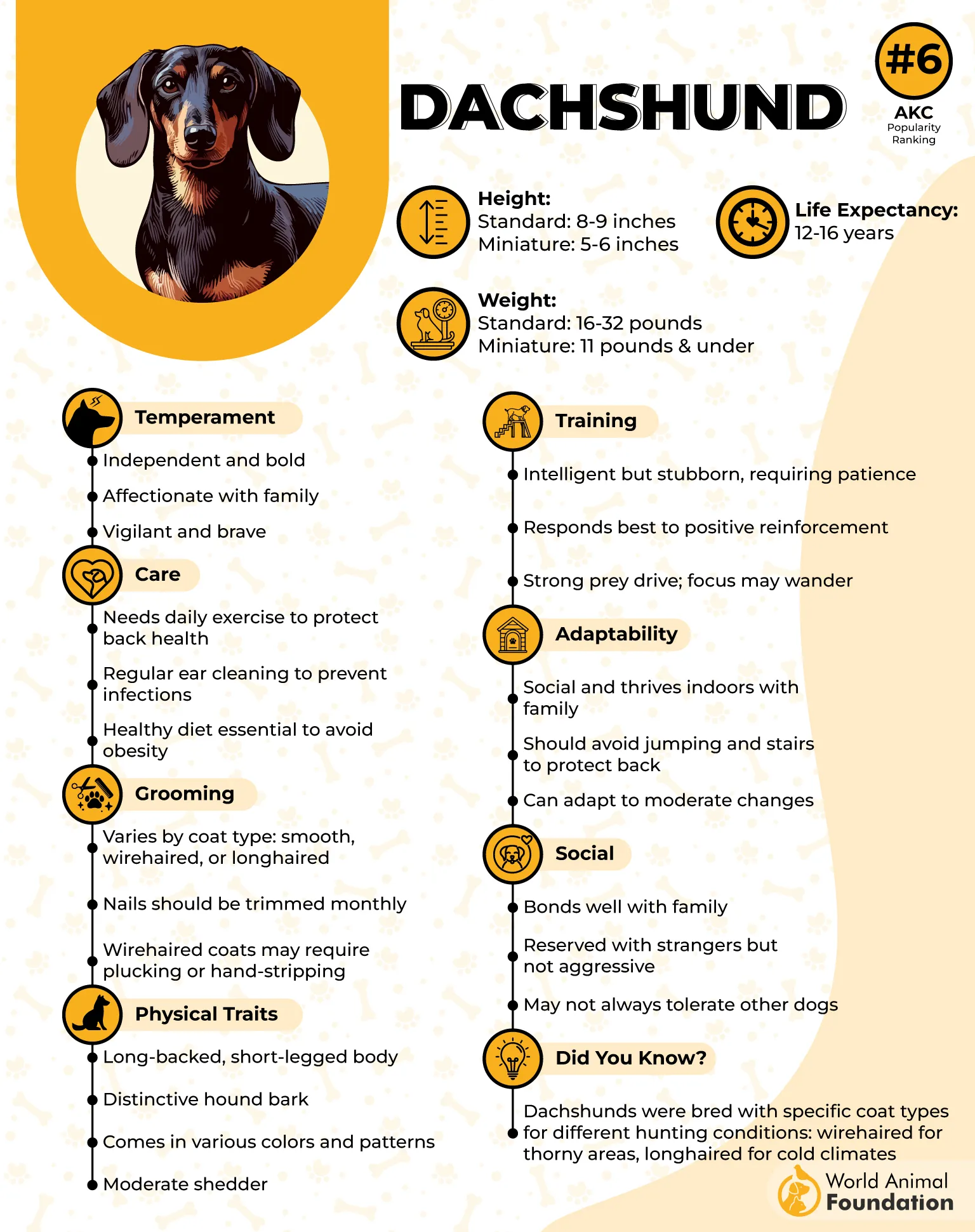
Dachshunds are prone to weight gain, so finding the balance between appealing meals and a balanced meal is key. A higher protein diet in small portions can help maintain their stamina while avoiding excess calories.
Feeding your Dachshund at the same time every day, without overindulging in snacks, can help reduce fussy tendencies. Sudden changes in food or overly rich meals can upset their stomach or encourage them to refuse food altogether.
These little guys can be stubborn, but their love for flavor is no mystery. With consistency, creativity, and care, even the pickiest Dachshund can look forward to a happy, nourishing mealtime.
6. Chihuahua

Chihuahuas may be the smallest of the bunch, but when it comes to picky eating, they have some of the biggest opinions. As one of the more common picky-eater dog breeds, these tiny pups are quick to decide what’s worth eating—and what’s absolutely not.
Many dog owners notice their Chihuahua will leave food untouched if it doesn’t have the right aroma or flavor. Wet food or a spoonful of canned pet food can help make meals more appealing. Still, giving in too often to human food or rich treats can make fussy eating habits worse.
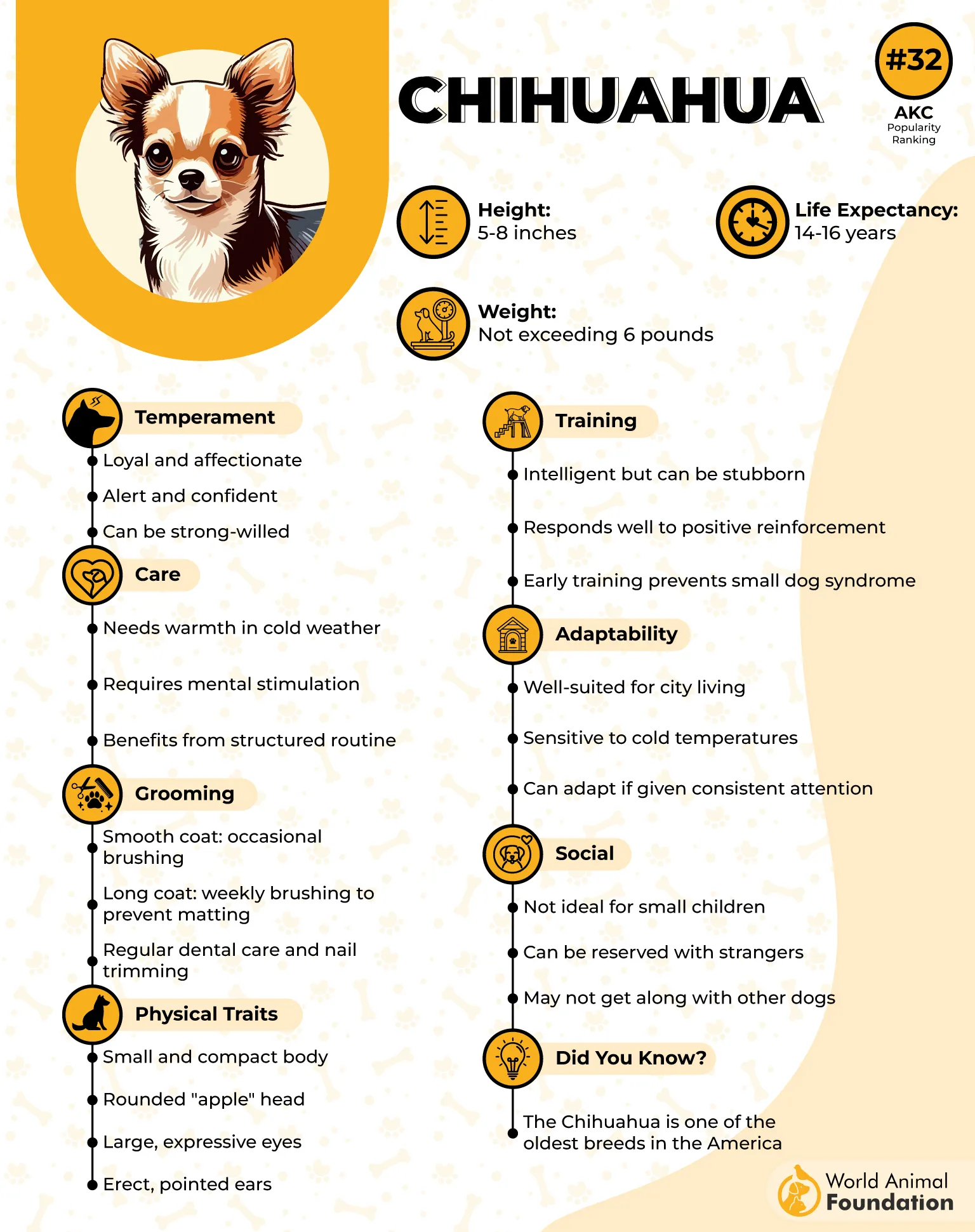
These small dogs burn energy fast, so even if they eat in small amounts, they still need nutrient-dense meals. A protein rich diet can keep them satisfied without adding unnecessary calories, especially since they’re prone to weight gain if overfed.
Feeding routines are key with this breed. Skipping meals or frequent food changes may lead your pup to refuse food altogether—or hold out for something tastier later.
Chihuahuas are smart, sensitive, and strong-willed. With the right mix of flavor, texture, and routine, you can turn even the most selective eater into a breakfast enthusiast.
7. Boston Terrier

Boston Terriers are lively, lovable, and surprisingly particular when it comes to their meals. While not the first breed people associate with picky eating habits, many Boston owners find themselves adjusting recipes to satisfy their pup’s preferences.
This breed often shows signs of selective eating when fed the same food too often or when meals lack variety in texture. Adding a bit of canned dog food or mixing in warm, wet food can help keep things interesting and appetizing.
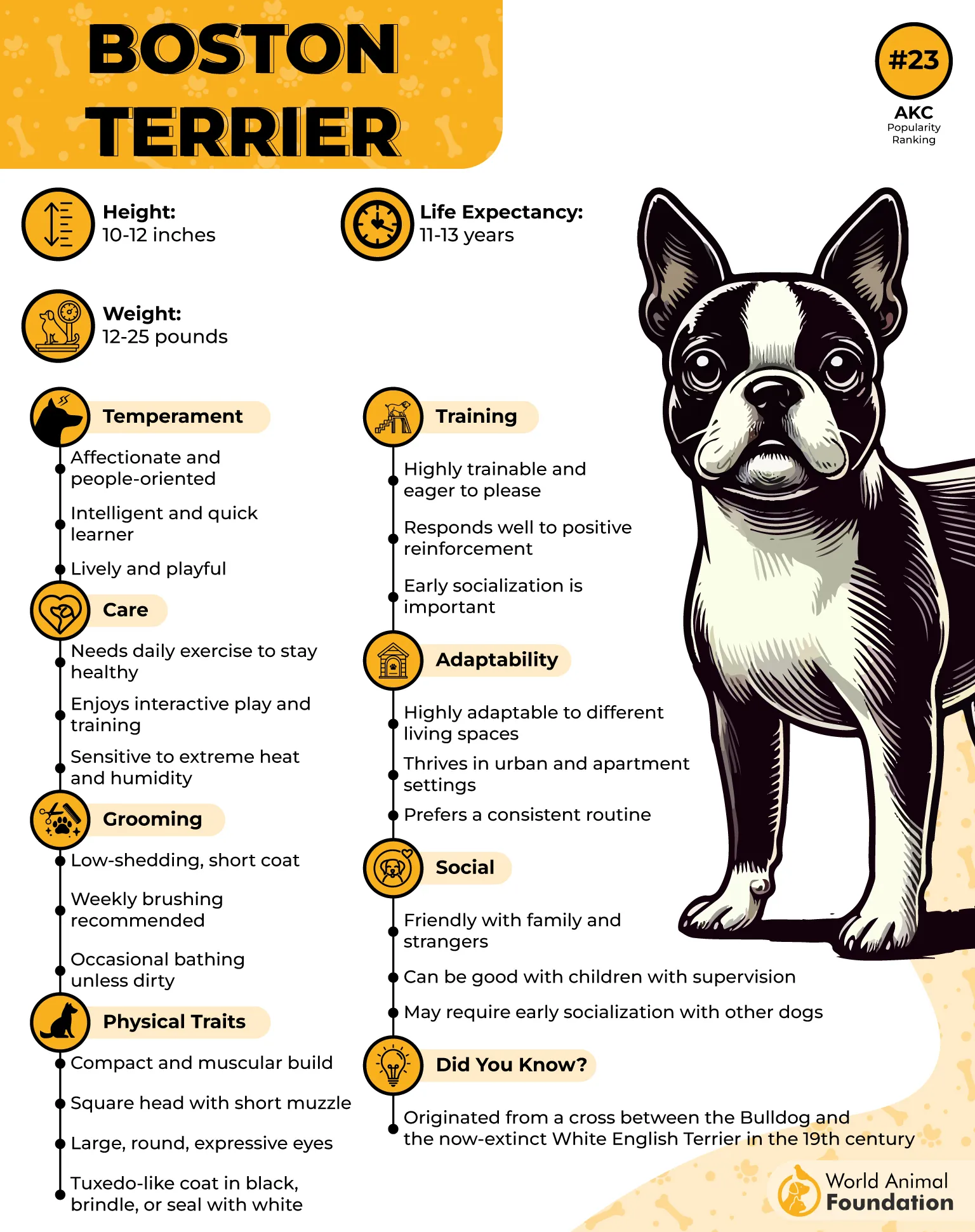
Despite their playful energy levels, Boston Terriers can be prone to sensitive stomachs. Offering fresh foods in small amounts—especially those that support digestion—can help avoid upset tummies while keeping their desire to eat strong.
Feeding routines and portion control are important. These dogs may refuse food if they’re given too many snacks during the day or if they get used to being spoiled with human food at dinner.
If your Boston starts to pick at their bowl, don’t panic. Try rotating flavors or using a higher protein meal designed for picky eaters. With a little trial and error, you’ll find what keeps your guy coming back for more.
Conclusion
Let’s face it—dogs can be full of surprises, and sometimes, that surprise is a turned-up nose at dinner. From the dainty Maltese to the strong-willed Dachshund, these occasionally picky-eating dog breeds may test our patience at mealtime, but they more than make up for it with their lovable quirks and loyal companionship.
Whether it’s the sophisticated taste of a Bichon Frise, the small-but-mighty opinion of a Chihuahua, or the flair for flavor seen in a Yorkshire Terrier, one thing is clear: picky eating isn’t a flaw—it’s part of their charm. These breeds aren’t being difficult for the sake of it; they simply know what they like, and they’re not afraid to let you know.
Understanding your pup’s preferences, trying out fresh foods or wet food options, and establishing a solid feeding routine can turn those mealtime stand-offs into bonding moments. Sometimes, the right mix in the food dish is all it takes to win them over.
So next time your furry friend turns away from their breakfast, take a deep breath and remember—you’re not alone. Cater to their unique tastes, and you just might discover a more joyful (and flavorful) way to feed your best friend.


